Parsley Detox NutraMedix 30ml
- Add feedback:
- Code: 8306
- Manufacturer: Nutramedix
-
Availability:
 Exists
Exists
- szt.
- 20.16 €

Parsley 30 ml
TO RESOLVE TOXICITY OF:
- LIVER
- KIDNEYS
- LYMPHATIC SYSTEM
- GROUND MATRIX (SPACE BETWEEN THE CELLS)
General Description
Parsley is an extract produced from the leaves and stems of Petroselinum crispum. It is a short-lived perennial herb that is a member of the carrot family. The herb Parsley provides dietary calcium, iron, riboflavin, thiamine, carotenes, ascorbic acid, and vitamins A and C. It is very effective in aiding detoxification of the liver, kidneys, lymphatic system and the ground matrix. Parsley Detox is commonly used in conjunction with antimicrobials produced by Nutramedix like Samento, Houttuynia, Banderol, Cumanda, Enula, and Mora. Many health care professionals have reported that Parsley Detox can be used in place of 4 or 5 other detoxification remedies. In many cases, a significant healing crisis (Herxheimer's reaction) can be dramatically reduced or eliminated by taking 10 drops of Parsley Detox approximately every 10 minutes for an hour or two.
Some Reported Medicinal Properties
• ANTI-ALOPECIAL (HAIR LOSS)
• ANTI-ANEMIC
• ANTI-ARTHRITIC
• ANTI-CARDIOVASCULAR DISEASE
• ANTI-GALLSTONES
• ANTI-CONJUNCTIVITIS
• ANTI-CYSTITIS
• ANTI-DERMATITIC
• ANTI-DIARRHEAL
• ANTI-FATIGUE
• ANTI-GLAUCOMA
• ANTI-GOUT
• ANTI-INFECTION
• ANTI-JAUNDICE
• ANTI-KIDNEY STONES
• ANTI-LIVER DISEASE
• ANTI-MENSTRUAL IRREGULARITY
• ANTINEOPLASTIC
• ANTI-RHEUMATISM
• GALACTAGOGUE
• HYPOTENSIVE
Research On NutraMedix Product
IN VIVO – ANTI-INFLAMMATORY
At the University of Guayaquil, Ecuador, Parsley produced an anti-inflammatory effect 89% as strong as Feldene as an anti-inflammatory. Full Article
IN VIVO – ACUTE ORAL TOXICITY TESTS
An acute Oral toxicity study was conducted by the University of Guayaquil, Ecuador concluding that Parsley did not produce toxic effects, thus the product is considered practically innocuous for humans when administered in the acute form. Therefore; studies of acute toxicity at higher doses in humans are not necessary. Full Article
Medical Conditions
(peer-reviewed journals)
DIABETES
Ozsoy-Sacan, O., Yanardag, R., Orak, H., Ozgey, Y., Yarat, A., & Tunali, T. (2006). Effects of parsley (Petroselinum crispum) extract versus glibornuride on the liver of streptozotocin-induced diabetic rats. Journal of Ethnopharmacology, 104(1-2), 175-181. Full Article
Bolkent, S., Yanardag, R., Ozsoy‐Sacan, O., & Karabulut‐Bulan, O. (2004). Effects of parsley (Petroselinum crispum) on the liver of diabetic rats: a morphological and biochemical study. Phytotherapy Research, 18(12), 996-999. Full Article
Yanardağ, R., Bolkent, Ş., Tabakoğlu-Oğuz, A., & Özsoy-Saçan, Ö. (2003). Effects of Petroselinum crispum extract on pancreatic B cells and blood glucose of streptozotocin-induced diabetic rats. Biological and Pharmaceutical Bulletin, 26(8), 1206-1210. Full Article
Medicinal Properties
(peer-reviewed journals)
ANTISPASMODIC
Tirapelli, C. R., de Andrade, C. R., Cassano, A. O., De Souza, F. A., Ambrosio, S. R., da Costa, F. B., & de Oliveira, A. M. (2007). Antispasmodic and relaxant effects of the hidroalcoholic extract of Pimpinella anisum (Apiaceae) on rat anococcygeus smooth muscle. Journal of Ethnopharmacology, 110(1), 23-29. Full Article
ANTIOXIDANT
Tang, E. L. H., Rajarajeswaran, J., Fung, S., & Kanthimathi, M. S. (2015). Petroselinum crispum has antioxidant properties, protects against DNA damage and inhibits proliferation and migration of cancer cells. Journal of the Science of Food and Agriculture, 95(13), 2763-2771. Full Article
Wong, P. Y., & Kitts, D. D. (2006). Studies on the dual antioxidant and antibacterial properties of parsley (Petroselinum crispum) and cilantro (Coriandrum sativum) extracts. Food chemistry, 97(3), 505-515. Full Article
Zhang, H., Chen, F., Wang, X., & Yao, H. Y. (2006). Evaluation of antioxidant activity of parsley (Petroselinum crispum) essential oil and identification of its antioxidant constituents. Food research international, 39(8), 833-839. Full Article
Fejes, S. Z., Blazovics, A., Lemberkovics, E., Petri, G., Szöke, E., & Kery, A. (2000). Free radical scavenging and membrane protective effects of methanol extracts from Anthriscus cerefolium L.(Hoffm.) and Petroselinum crispum (Mill.) Nym. ex AW Hill. Phytotherapy Research, 14(5), 362-365. Full Article
Nielsen, S. E., Young, J. F., Daneshvar, B., Lauridsen, S. T., Knuthsen, P., Sandström, B., & Dragsted, L. O. (1999). Effect of parsley (Petroselinum crispum) intake on urinary apigenin excretion, blood antioxidant enzymes and biomarkers for oxidative stress in human subjects. British Journal of Nutrition, 81(6), 447-455. Full Article
Haidari, F., Keshavarz, S. A., Shahi, M. M., Mahboob, S. A., & Rashidi, M. R. (2011). Effects of parsley (Petroselinum crispum) and its flavonol constituents, kaempferol and quercetin, on serum uric acid levels, biomarkers of oxidative stress and liver xanthine oxidoreductase activity in oxonate-induced hyperuricemic rats. Iranian journal of pharmaceutical research: IJPR, 10(4), 811. Full Article
ANTIBACTERIAL
Petrolini, F. V. B., Lucarini, R., Souza, M. G. M. D., Pires, R. H., Cunha, W. R., & Martins, C. H. G. (2013). Evaluation of the antibacterial potential of Petroselinum crispum and Rosmarinus officinalis against bacteria that cause urinary tract infections. Brazilian Journal of Microbiology, 44(3), 829-834. Full Article
Aljanaby, A. A. J. J. (2013). Antibacterial activity of an aqueous extract of Petroselinum crispum leaves against pathogenic bacteria isolated from patients with burns infections in Al-najaf Governorate, Iraq. Research on Chemical Intermediates, 39(8), 3709-3714. Full Article
Seyyednejad, S. M., Maleki, S., Damabi, N. M., & Motamedi, H. (2008). Antibacterial activity of Prunus mahaleb and Parsley (Petroselinum crispum) against some pathogen. Asian J Biol Sci, 1(1), 51-55. Full Article
Wong, P. Y., & Kitts, D. D. (2006). Studies on the dual antioxidant and antibacterial properties of parsley (Petroselinum crispum) and cilantro (Coriandrum sativum) extracts. Food Chemistry, 97(3), 505-515. Full Article
ANTIFUNGAL
Pineda, R., Vizcaíno, S., García, C. M., Gil, J. H., & Durango, D. (2018). Antifungal activity of extracts, essential oil and constituents from Petroselinum crispum against Colletotrichum acutatum. Revista Facultad Nacional de Agronomía Medellín, 71(3), 8563-8572. Full Article
Linde, G. A., Gazim, Z. C., Cardoso, B. K., Jorge, L. F., Tešević, V., Glamoćlija, J., ... & Colauto, N. B. (2016). Antifungal and antibacterial activities of Petroselinum crispum essential oil. Genet Mol Res, 15(3), 15038538. Full Article
ANTI-INFLAMMATORY
Al-Howiriny, T. A., Al-Sohaibani, M. O., El-Tahir, K. H., & Rafatullah, S. (2003). Preliminary evaluation of the anti-inflammatory and anti-hepatotoxic activities of' parsley'petroselinum crispum in rats. Journal of natural remedies, 3(1), 54-62. Full Article
SPASMOLYTIC
Moazedi, A. A., Mirzaie, D. N., Seyyednejad, S. M., Zadkarami, M. R., & Amirzargar, A. (2007). Spasmolytic effect of Petroselinum crispum (Parsley) on rat's ileum at different calcium chloride concentrations. Pakistan journal of biological sciences: PJBS, 10(22), 4036-4042. Full Article
HEPATOPROTECTIVE EFFECT
Bolkent, S., Yanardag, R., Ozsoy‐Sacan, O., & Karabulut‐Bulan, O. (2004). Effects of parsley (Petroselinum crispum) on the liver of diabetic rats: a morphological and biochemical study. Phytotherapy Research, 18(12), 996-999. Full Article
IMMUNOMODULATING
Yousofi, A., Daneshmandi, S., Soleimani, N., Bagheri, K., & Karimi, M. H. (2012). Immunomodulatory effect of Parsley (Petroselinum crispum) essential oil on immune cells: mitogen-activated splenocytes and peritoneal macrophages. Immunopharmacology and immunotoxicology, 34(2), 303-308. Full Article
Patient Reports
"Parsley when combined with pinella, makes for an excellent detox. Great for Herxheimer reactions. A must-have for Lyme disease." -W.S.
“I'm using many of the NutraMedix products as part of my treatment for late-stage Lyme Disease. Parsley is great for helping your body detox. I am very happy with this product.” – K.O
“It's my lifesaver to rid of toxins from Bartonella and Lyme. Great product can't live without it! Just 10-20 drops in water until feel better. Thank you!” – J.P
“I really like this product and heavily depend on it to detox all the nasty stuff associated with Lyme disease.” – M.B
"Parsley is very effective in getting my lymphs to drain. Recommended by my doctor and safe." -E. I think it is great!" -B.L Great product for Lyme disease like all Cowden products. This is by far the best protocol to address Lyme and the most cost effective too. Strong stuff without side effects. Until now there is no better option available to keep Lyme in remission."-F.S.
Dosage Information
General Detox Aid: Take 10 drops in 4 oz. of water 1-2 times daily.
Mild Toxicity: Take 10 drops 3-4 times daily. May be taken several times per day as needed.
Moderate to Severe Toxicity and Herxheimer Reaction (healing crisis): take 10 drops every 15 minutes in 2 oz. of water until symptoms are resolved.
Can also put 2 droppers full (approximately 60 drops) in at least 16 oz. of water and sip over a 2-hour period, repeating until symptoms are resolved.
Each 10 drop dose can be taken with 10 drops of Pinella in the same water.
Safety Information
An acute Oral toxicity study was conducted by the University of Guayaquil, Ecuador concluding that Parsley did not produce toxic effects, thus the product is considered practically innocuous for humans when administered in the acute form. Therefore; studies of acute toxicity at higher doses in humans are not necessary. Full Article

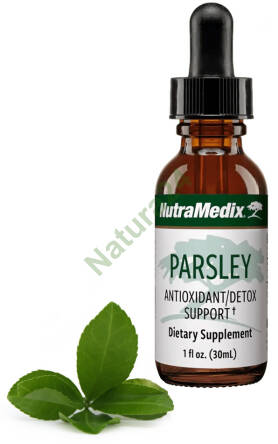



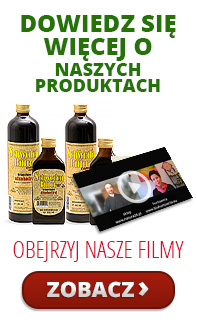
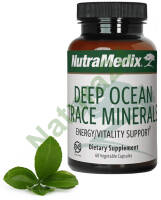
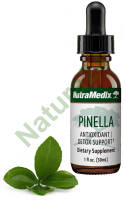
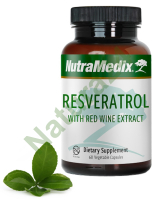
 Polish
Polish
 German
German
Wszystko przebiegło pomyślnie. Polecam!
SUPER KONTAKT, B. SZYBKA DOSTAWA, SUPER PRODUKT, SUPER SPRZEDAJACY - POLECAM BAAAARDZO
Z ogromną przyjemnością wystawiam komentarz POZYTYWNY!!! Wszystko sprawnie, miło i przyjemnie!!! Przesyłka ekspresowa.!!! GORĄCO POLECAM
Przesyłka wysłana w błyskawicznym tempie Juz na drugi dzień rano.Polecam w 100%.
olejek rycynowy rewelacyjny